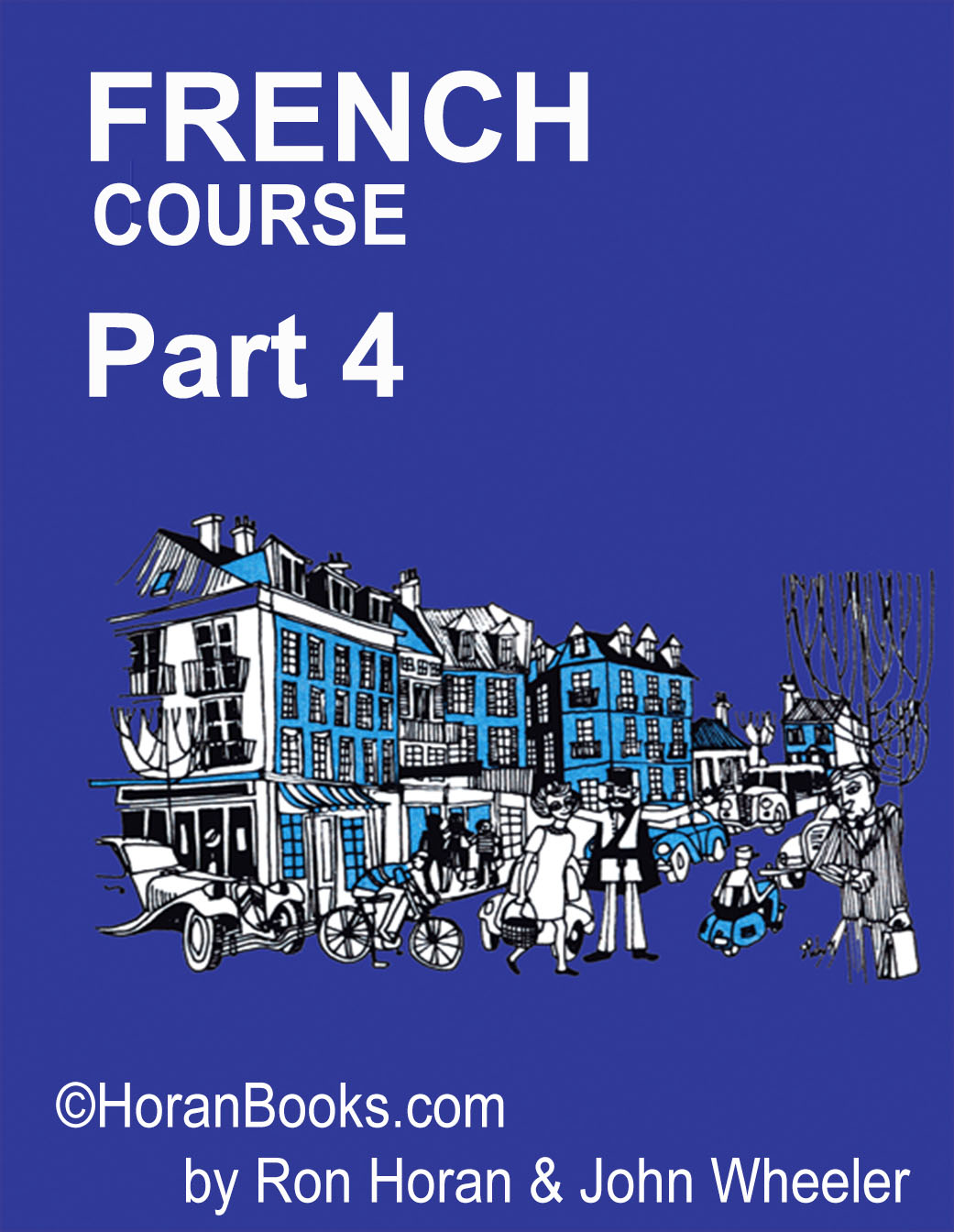Description
French Course Part 4 Horan & Wheeler – ©2020 – 2025
NB: Available NOW in these formats – Kindle eBook and Print on demand Paperback & HardCover.
This new edition of Part IV of “A New French Course” is designed for students who have completed a Junior, School Certificate or Intermediate course and are proceeding with their senior studies.
There are twenty lessons in the book with an abundance of exercises in each. Many of the lessons lend themselves to an aural’…oral approach and if this method is used, many more exercises can be completed in class than if most of the lesson time is spent in writing.
The following synopsis should prove useful to teachers and students.
Each of the lessons contains:
- A dialogue/comprehension passage
- A grammar topic (with drill exercises)
- Verb drill-regular and irregular
- A prose translation
- A pronunciation exercise
- A vocabulary topic
- A set of revision exercises
Each of the odd-numbered lessons contains:
- An additional comprehension passage
- A composition exercise
Each of the even-numbered lessons contains:
- A reading passage
- A ‘situation’ segment
- A dictation
At the back of the book will be found additional comprehension exercises, as well as a comprehensive set of appendices summarising basic points of grammar.
The vocabulary of the book is extended beyond the Français élémentaire and incorporates many hundreds of new words that have been included in the lessons because of their high frequency in the language. With such a vocabulary at their command, students should be enabled to read widely in French.
We owe a special debt of gratitude to Dr V. Sauran of the University of New South Wales, who wrote many dialogues used in the book. A number of passages used are drawn from public examination papers. Many of them have their source in newspaper and magazine articles. Despite our best efforts, we have not been able to trace the origin of some of these. We would be pleased to receive information about them so that due acknowledgement may be made. We are also indebted to Monsieur D. Vever, Director of Studies at the Alliance Fran?aise, for several valuable suggestions.
We are hopeful that the book in this new edition will be welcomed by teachers and that students will find the material offered both interesting and stimulating.
Ron S. Horan
John R. Wheeler
- French Course Part 1
- French Course Part 2
- French Course Part 3
- French Course Part 4
- French Course Part 5
- French Course Part 6 – A French Vocabulary
- Senior French Part 1
- Senior French Part 2
See the rest of French Course Books:
See our Pet Care Books & Courses




